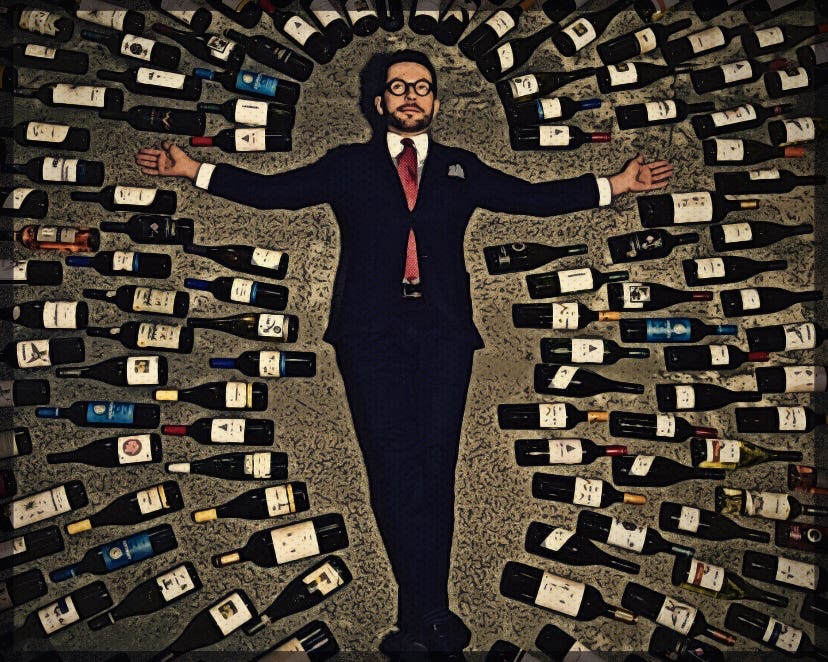I'm going to couch this passage in personal terms, because in a lot of ways it is personal, yet instructive to anyone else in the business of on-premise sales.
During my 25 or so years working as a full-time wine buyer, I had distributor and supplier colleagues who I considered my very best friends, or my worst enemies.
An enemy, for instance, would be someone who plays golf with your boss and tells him I am his worst possible hire. True story. My boss was the one who told me that. I suppose, from one perspective, I was a bad hire; but since that information came from someone who only said that because I was not inclined to buy all his wines, I would say that was an unreliable source.
At one point, I was running wine programs in over a dozen and a half locations in ten different states. I had one close supplier/friend who worked several of those markets, so I knew my name inevitably came up in her conversations with distributor/colleagues. One day I asked her: What do distributors think of me out there? She said, "You kidding me? Most of them hate you."
I was not surprised. Rather than a friend, I was probably more like a nightmare because, whenever we entered a market, we came in with a basic program common to all our stores. It's not like I wasn't aware that each distributor's job is to place new products and make their quotas. Later on, for about six years, the shoe was on the other foot when I operated my own wine label and set up the exact same arrangements with my own distributors in twelve different states.
I did, however, do my my best to maintain good relationships in every market. Local distributors and suppliers were always welcomed to make their pitches⏤providing they were cognizant of our cuisine and sensory priorities, which emphasized food-versatility. Everyone was informed what those priorities were in the most specific terms⏤that is, spelled out in black and white on a sheet passed out to maximize everybody's time and to avoid disappointment. Moreover, proposed wines could come from anywhere and be made from any grape or blend (giving sales people lots of extra leeway), as long as the wines met our food criteria and cost objectives.
For many sommeliers and restaurant wine buyers, of course, the dog-and-pony show of sitting down with distributor after distributor, followed by supplier after supplier, can become the worse part of your job. Sure, you benefit intellectually by being able to taste countless wines from around the world. But the tedium can be excruciating, and it literally takes away time that could be better spent with your staff at work or family at home.
The solution for a restaurateur: Make sure every industry rep knows what you're looking for well before they walk through the door. If you don't communicate your needs ahead of time, then it's your own damned fault if they start wasting your time with wines you're never going to buy, and your job as a wine buyer gets out of hand.
As it were, a large percentage of the wine lists in each of our locations did, in fact, consist of wines unique to those locations. We weren't entirely "corporate." If a "new" wine sold well in one location, we'd share that information among all our on-premise buyers, and worked to incorporate newly discovered selections into other locations.
This, though, was never an automatic because not all wines are available in every city or state. It was probably easier for our restaurant group to get wines into new markets because we were accustomed to working directly with wineries and importers⏤something part and parcel of multi-unit operations⏤who typically went out of their way to get the wines we needed into each market.
In fact, if there's anything I'd share with sommeliers and on-premise buyers today, it would be that you should never be satisfied only by what you find in a local distributor's or importer's book. If you are aware of other wines that you would prefer, you should ask for them. If, as often the case, your local distributor refuses to fulfill your requests, then you need to go directly to the source⏤the principals at wineries or import companies. I know for a fact that all vintners are thrilled to hear directly from restaurant buyers. If you go the extra mile, you get the extra wines that make you special.
Of course, by saying this I know I am not going to please a lot of distributors or suppliers across the country. The vast majority of them would much prefer that you stick to the wines in their books. Then again, that was the reason many of them never liked me in the first place!





